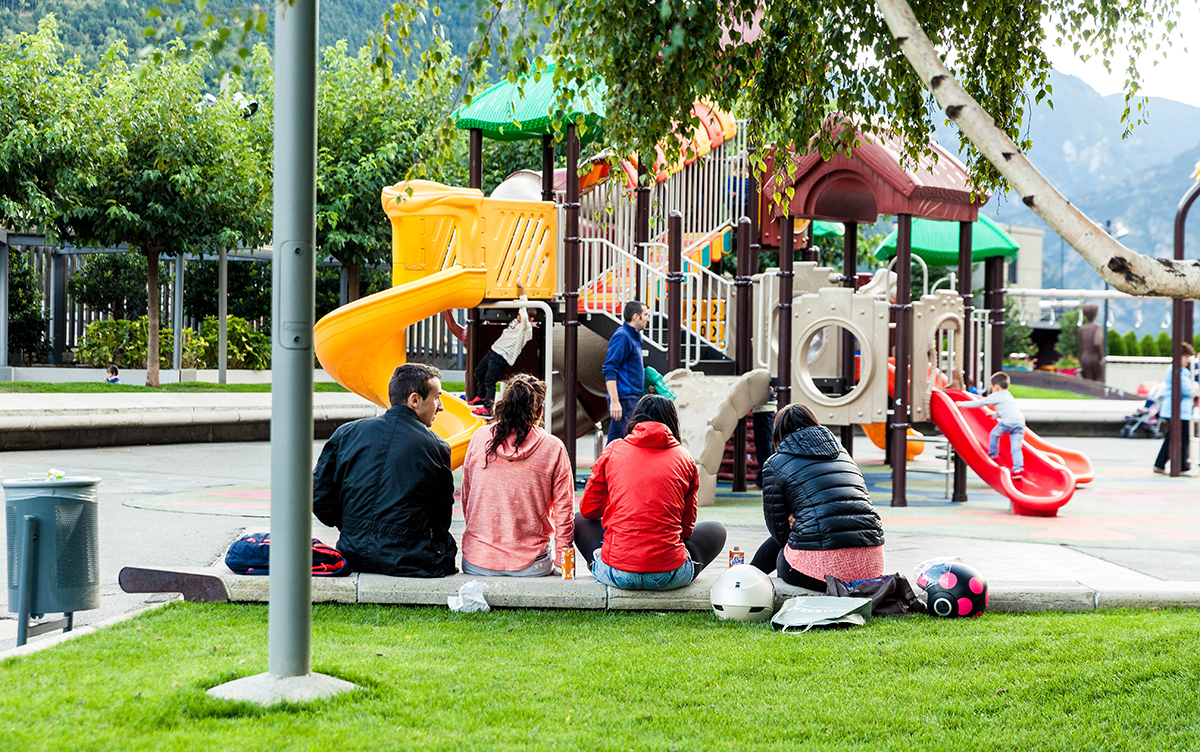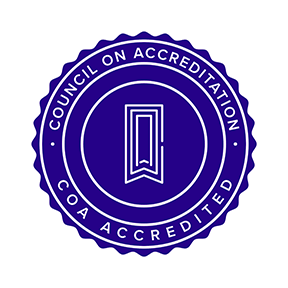

There are many memorable experiences that occur for social workers over their time serving in foster care. One such occurrence that comes up is when a biological parent is distressed with the removal of their child who is placed into the foster care system. There are many reasons this takes place including substance abuse, incarceration, mental illness or neglect of the child. Whatever the reason for the child’s removal, it is for their safety and in their best interest. This can be devastating, not only for the child, but also for the parent and biological family.
The purpose of foster care is to provide a temporary safe place until a permanent solution can be achieved through reunification with family, adoption, or emancipation. It is the hope and responsibility of foster care agencies and foster parents to ensure every opportunity for reunification is attempted. At Trinity Youth Services, we deeply hope and root for biological families to change the circumstances necessary to reunify children with their family. We look to foster parents to help by getting youth to and from visitation meetings with biological families, attending family meetings, and utilizing mental health and counseling services.
It is very important that all parties maintain respect and compassion for one another for the sake of the child. It is also important to understand what the birth parent is going through, listen to their feelings and remember they are deserving of respect and a chance to be reunited with their child if it is safe to do so. Until then, we make certain that biological parents know we do everything to ensure the safety and well-being of their child.
If reunification cannot be achieved, their parental rights will be terminated and the child will be available for adoption. Our goal is to provide the child with the best permanent solution as soon as possible so they may have a chance to heal from the trauma experienced in their life and find the normalcy they long for.
This process isn’t always easy and our social workers certainly have had to form a thick skin to effectively and compassionately communicate with upset birth parents, but this work is rewarding. We often hear from families long after a child has been in our care regarding their progress and how, ultimately, the experience changed their life for the better. Our reward is knowing a child is safe and leading a stable life. Years later, we get phone calls and letters of gratitude about our genuine concern for everyone involved. It’s stories like these that make it all worthwhile.

Jenelle Phillips, Director of Development
Jenelle’s role is to identify and access resources for youth in our care. She is also responsible for maintaining a distinctive look and voice for Trinity through our online presence, media and community outreach. Before joining the Trinity team in 2016, Jenelle worked in the newspaper/magazine industry for nearly a decade as an award-winning graphic designer, photographer, writer and editor. Jenelle earned a bachelor’s degree in communications at California State University Fullerton. Jenelle is very involved in the community and is active in her church.


It is easy to have unconditional love for a child in crisis. Opening your home and your heart to a foster child in order for them to become happy and whole again, is very rewarding and heroic. As a foster parent, your primary role is providing safety, comfort and love to a child, but one major challenge that many foster parents face is forming positive relationships with birth parents.
The number one reason you will want this to be one of your top priorities is because it helps the child feel safe, and it greatly benefits the parent as well. You can teach them parenting skills, help them learn effective communication skills, and conflict resolution skills. As a foster parent, you can have a profound impact that can help bring a family back together. To build a good relationship with your foster child’s birth parent, try these tips:
1. Be Supportive
Most children in foster care have been abandoned, abused or neglected by their parents. It can be easy to judge them for their actions, but remember that most of these parents truly want to do better. Instead of criticizing them, offer your support or a word of encouragement when they need it most.
2. Ask Yourself Positive Questions
Temporarily losing custody of a child can be a very painful experience. Many parents experience grief, anger, and a multitude of other emotions. Asking yourself questions such as, “How would I like to be treated if I was the birth parent?” can help you develop empathy and compassion for the parent. When parents feel accepted, and are treated with respect, they will feel more comfortable with you and develop trust, which is the foundation of any successful relationship.
3. Conduct Monthly Family Meetings
An effective way to build a relationship with a birth parent is to create time to meet with them to discuss upcoming activities, school progress and other important information about their child. Parents looking to reunify with their child will not only appreciate being able to take an active role on behalf of their child, but will also form a favorable attitude about you. Having a healthy and successful relationship with birth parents is one of the best things you can do to help support your foster child and give them the stability they need to thrive.
Talk to your social worker about your desire to create and maintain a positive relationship with the child’s birth family and ask them for their suggestions. Your social worker has a wealth of experience and knowledge, remember to share your foster care hopes, concerns and successes with them!
 Florence Edwards, Foster Care Marketing Specialist
Florence Edwards, Foster Care Marketing Specialist
Florence has a strong commitment to helping foster youth and their families thrive and live successful lives. A former foster youth, Florence obtained her bachelor’s and master’s degree in Communications from California State University, San Bernardino, and is a certified Holistic Life Coach, motivational writer, self-help author and celebrity interviewer. Beyond the Trinity Youth Services blog, Florence’s articles can be found in numerous platforms including Foster Focus Magazine, Heart & Soul Magazine, BET Centric and Huffington Post. A passionate advocate for the LGBTQ community, Florence continues to educate, support and mentor foster youth throughout Southern California. Email: fedwards@trinityys.org | Phone: (888) 346-9645





